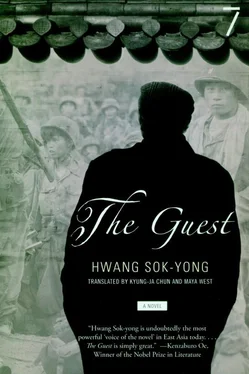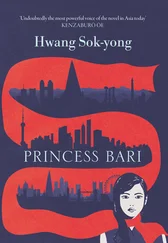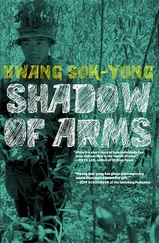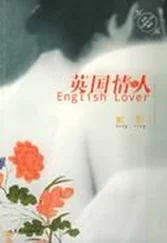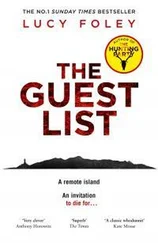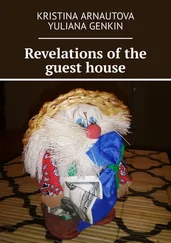At that point, yet another incident occurred — this time, though, it was something that no one had really expected. In the middle of a memorial ceremony station hosted by the People’s Committee at the Pyongyang train, somebody threw a hand grenade onto the platform where the key staff of the People’s Committee and the representatives of the Soviet military administration were seated side by side. A Soviet officer grabbed the grenade and threw it away — his arm was blown off. Several days later, a second bomb exploded, this time at the residence of the commander of the Soviet Army. And then, within a fortnight, there was a third explosion in the house of the People’s Committee’s puppet, Kang Ryanguk, a minister who ran a Leftist organization called the Christian League. Kang lost his oldest son.
All these insurrections were the work of the Christian Youth. Of course, they were helped by young men from the South, members of the Anticommunist Youth Corps and the Korean Independence Party. If the Communists had Marx’s Das Kapital , we had our Bibles. We’d become the Lord’s crusaders; they were the minions of Satan. It was a conflict that had begun long before, in the generation of our grandfathers, when the people of Chosŏn got their first taste of enlightenment.
Despite all this, though, people living in the same villages still couldn’t quite bring themselves to rise up against one another. You know how weak Chosŏn people can be when it comes to having a shared history with someone — we’ve got a soft spot for that kind of kinship. You just can’t look somebody like that in the face and be cruel and heartless. But then, you see, something happened, something we could never have imagined, something completely unheard of. What, you ask? They tried to take away our land, the land that’d been handed down to us from generation to generation. It was the beginning of what they called the “land reform.” And you know, even then, if it had been total strangers or some foreign bastards who showed up and tried to rob us of our land at gunpoint, well, then we might have just cried our hearts out, been mortified at our own helplessness, and given in — but that wasn’t how it happened. It was our friends, the kids we grew up with, the ones we’d known from babyhood until we got old enough to grow pubic hair, swimming naked together and fishing in the river — people we’d shared broth with, sometimes sleeping under the same roof after we worked side by side in the same fields and mountains — these very same sons of bitches started showing up, completely poker-faced, telling us to just hand over our land.

All right, you’ve had your say. Now it’s my turn. It was around the twenty-fifth, I think, when the Soviet Liberation Army marched into Hwanghae Province. The Soviet political officer came with his advance troops, and he met with Chosŏn representatives from all those community organizations — it was all in compliance with decisions that had been made in Pyongyang. So was changing the name of the Hwanghae branch of the Committee for the Preparation of Korean Independence to the Hwanghae Province People’s Political Committee. Then they just went ahead and appointed a Christian presbyter as the chairman of the committee. Except for a few Leftists, all the members were either landowners or other rich folk with lots of influence. I’d just gotten home from Ŭnnyul, so I went to look up Mr. Kang and see some old friends, the ones I used to read the bulletin with.
All sorts of organizations were springing up back then in Hwanghae Province, like weeds that grow like crazy after a heavy rain. I remember the Hwanghae Province Regional Committee of the Chosŏn Communist Party had a pretty motley crew back then, from former tenant farmers to men who’d been schooled in Seoul or Japan, who had book learning and knew all their — isms. And then there were the ones who, as we used to say, were just “whatever-ists,” the ones who just joined because they thought it looked good. Those “security forces,” as they called themselves, and the “peacekeeping troops”—they were all good-for-nothings who used to hang around town, and those were the groups some of the young Christians ended up joining. The Christians and the Committee for the Preparation of Korean Independence were basically one and the same, too. It was different in Hamgyŏng Province, they say, but that’s how it was in P’yŏngan Province and Hwanghae Province. We — the young men — we were far from content. The way we saw it, the bastards who’d lived so well through the occupation, fawning all over the Japs — they were still the same ones who were getting the higher positions, even after liberation and still ordered us to do this and that. Things were in a sorry state.
To tell the plain truth, your father, Presbyter Ryu Indŏk, and your grandfather, Reverend Ryu Samsŏng — they came into their land by working as agents for the Japanese Oriental Development Company, managing the contracts of tenant farmers. Practically everyone who attended Kwangmyŏng Church, in fact, lived quite comfortably, and most of them had at least a plot of land to their name, small or large. As for the churchgoers who lived in town, they were all restaurant owners, pharmacy owners, schoolteachers, millers — all pretty loaded, really. And the members of the so-called Committee for the Preparation of Korean Independence, they were the same kind of people. The only thing different about them was that they called themselves the Nationalist Camp. Anyway, we stood firm. Land reform had to be implemented using blind confiscation and blind distribution. That’s when the Nationalist Camp flared up in a rage and refused to compromise. They said the very notion of abolishing the landownership system was unpatriotic. They wanted to employ the three-to-seven system, with thirty percent going to the landowners and seventy to the tenants, provided that all farming expenses were handled by the tenants — but it all amounted to nothing in the end. You see, even under the Japanese occupation, everyone argued over these exact same issues. You know what I say? Show me a Christian leader who didn’t come from a family of landowners.
I’m not pretending that the Left didn’t have its problems, too. Being Communist was our claim to fame, but there were so many inner factions that a country bumpkin like me could never keep them all straight. There was a domestic group that kept running to Seoul to find out which way the wind was blowing, a separate group from China, and a group of comrades with weird names who’d come with the Soviet army — but the number of partisans who, weapon in hand, actually fought against the Japanese, well, that was so small that none of them could even find the time to visit the simple folks in the countryside.
Still, after the Committee for Preparation became the People’s Committee, things did get a bit better for us. When he returned from his visit to Pyongyang in mid-October, Mr. Kang told us what had happened at the Enthusiasts’ Rally of the Five Northwestern Provinces held by the Chosŏn Communist Party. He told us that General Kim said our newly liberated country would be weakened by any internal strife and that we all had to do our best to work together with the conscientious national capitalists. The General said we shouldn’t assume that every last person who’d worked under the Japanese occupation was a Japanese front man — he said the real battle ahead of us was against the landlords, against the true Japanese spies who were masquerading as members of our Party. Two days after the Enthusiasts’ Rally came the Pyongyang People’s Rally, and that’s where we found out that the Protestants were claiming we’d only been liberated by “the grace of God.” Following that, the Honorable General made his first ever public appearance. In order to build a democratic Chosŏn, he told us, those with money needed to provide money, those with knowledge, knowledge, those with strength, strength, and so on and so forth, so that the entire race could finally unite as one and create a truly autonomous, independent nation. But then, in Pyongyang, the Protestants formed the Chosŏn Democratic Party and grown men like your father, Presbyter Ryu, youths like Yohan and Sangho, and all kinds of riffraff like the trash who raided our office — they all actually became official Democratic Party members. Up until that point, we’d just put up with it all, doing whatever you young ones told us to do. Everyone told us to just bear with it for the sake of national unity. It was real easy to tell a Leftist from a Rightist back then, even from far off, you know, just looking at their clothes and build. I mean, we’d all been underfed as children, and we still had no money for clothes, so we just looked wretched all around.
Читать дальше
